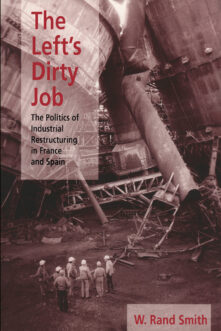The Left’s Dirty Job
The Politics of Industrial Restructuring in France and Spain
The Left’s Dirty Job compares the experiences of recent socialist governments in France and Spain, examining how the governments of Francois Mitterrand (1981-1995) and Felipe Gonzalez (1982-1996) provide a key test of whether a leftist approach to industrial restructuring is possible. This study argues that, in fact, both governments’...

